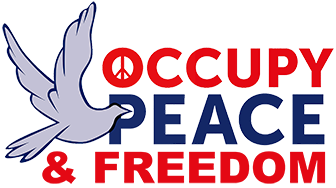“Are they animals? Dogs? There must be a cost of life.”ASby Amanda SperberJuly 22, 2021, 9:00am
Quasim Dahir learned that the American military admitted to killing his 22-year-old sister and her four-year-old daughter in an airstrike while he was having tea in a shop in D’ac, a small village in the center of Somalia, and listening to the radio. It was April 5, 2019 at about 5:00 pm. The strike had occurred the year prior.
The BBC broadcast did not mention Lul Dahir Mohamed, his sister, and Mariam Shilo Muse, his niece, by name, but with the date of the attack and the location reported, it couldn’t have been anyone else. After Lul and Mariam were killed, Dahir’s family and the wider community had given interviews on local media affiliated with al Shabaab, the Somali militant group that the United States is targeting. They told anyone who would listen that the people who died in the strike were civilians and that Lul had a remaining child, a devastated husband, and parents.
Dahir’s sister and niece were the first civilians the U.S. military publicly acknowledged killing in Somalia. Representatives from the family, including Dahir, said that they have never heard from the U.S. or the Federal Government of Somalia.
The first recorded U.S. airstrike in Somalia took place on January 7, 2007. After 14 years of strikes, the U.S. has taken responsibility for a total of four incidents of civilian casualties: Three incidents involving civilian deaths and injuries and one incident with civilian injuries and no deaths. This comes to a total of five admitted deaths and eight injuries.
VICE World News spoke with three of the four families of those killed by the U.S. military, who said that none of them have personally heard from the U.S. government or received a condolence payment, as well as several former Somali officials who worked closely with the U.S. government, U.S. Command in Africa (AFRICOM), and the CIA. None could recall participating in substantive conversations about how to manage cases of confirmed civilian casualties, including seven former security advisors and intelligence chiefs who had their positions during or after the Trump administration relaxed the rules to prevent civilian casualties in U.S. airstrikes in 2017.
“The silence from the U.S. is another punishment for us.”
The relatives of civilian casualties talk about compensation, but they talk about recognition as well.
“We haven’t had power and means other than to show the Americans that we want our rights,” said Abdi Dahir, another brother of Lul’s. “We want an apology. We want compensation and we want acknowledgement. Such a horrible thing happened to my family. Someone dies and no one talks about it. It’s not that simple to just admit it and move on.”
“When the Americans admitted it, they scratched our scars,” said Dahir. “The silence from the U.S. is another punishment for us.”

Recent Comments